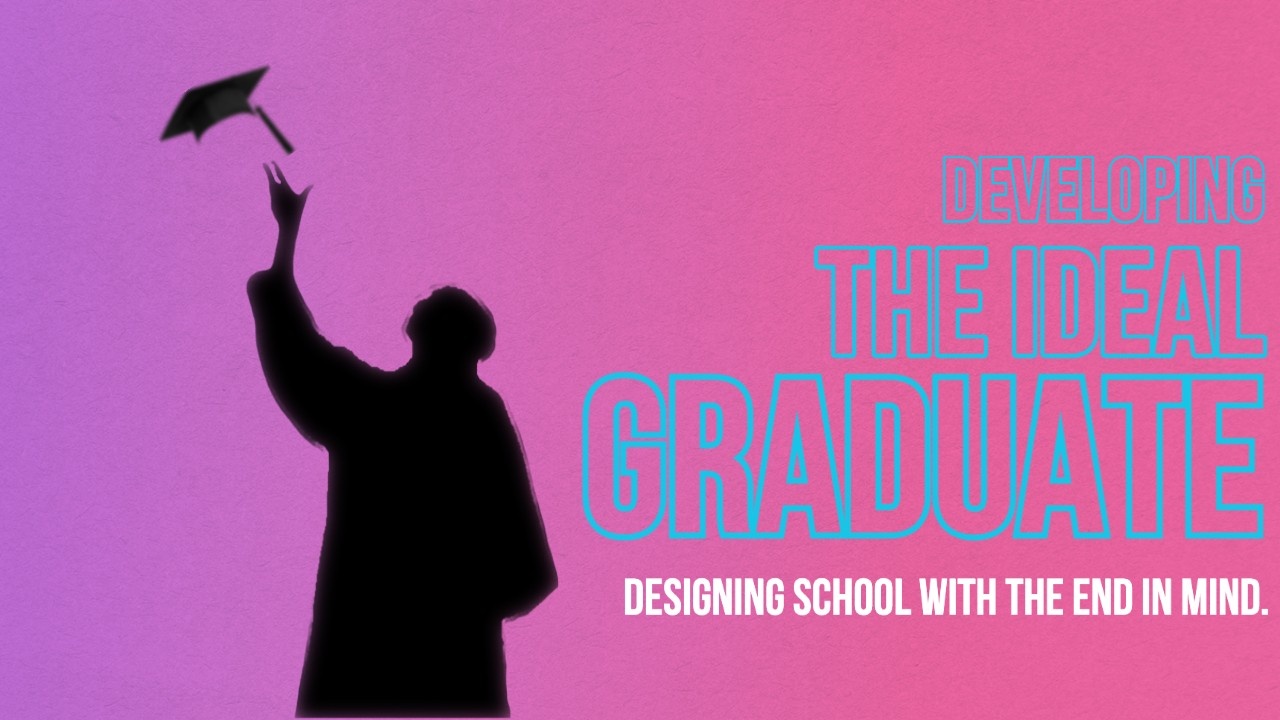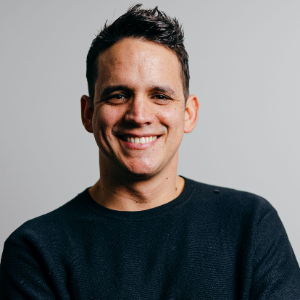
Developing the Ideal Graduate
Jan 06, 2023Let me ask you a question: What is the ideal graduate?
When kids leave their 13 years of formal education, what do we want them to be like? And this really raises the bigger question: what do we want people to be like? Because all of our doctors, and engineers, and politicians, and teammates, and neighbors, and citizens go through some form of education. So a lot of our formation, who we are and what we’re capable of, happens in school.
This is why this question is a big deal.
What is the ideal graduate?
Is the ideal graduate someone who can factor a polynomial, name every part of an atom, remember every date of every war in history, or is that not what came to mind when I asked that question? Maybe instead you think the ideal graduate is someone who can problem-solve and critically think. The world’s got a lot of big problems, so if you’re going to thrive in it, you’ve can’t be someone who shies away from challenges. The ideal gradual must be a gritty, resilient problem solver.
Or maybe the word “Communicator” came to mind, because you know that communication skills are essential. You have to know how to speak to large groups, but also in smaller teams, to superiors, to the cashier at the grocery store- the ideal graduate needs to know how to communicate.
But they also need to know how to collaborate and work well with others. And sometimes those others are not your friends. Sometimes you work with people who share different beliefs and ideals; personalities can clash and conflict arises, yet the expectation is you can work in spite of differences. The ideal graduate would know how to do this.
But they also need to be creative, passionate, and have self-awareness. We want them to be confident but humble. They should be independent and self-motivated, but also know how to work in community and be generous. And we also want them to be smart and knowledgeable, which is where polynomials and dates in history come in.
Is school designed to develop the Ideal Graduate?
This is the fundamental question: If these are some of the top characteristics we want in our communities- in our society- is school ultimately about helping students form these traits and skills? Because these characteristics are like muscles. The more you strengthen them, the stronger they become. The less we work them out, the more they atrophy.
So when we see young people struggling in the workforce, or data that shows that the top reason people are fired from their jobs is because they don’t have soft skills, I think we have to ask if these skills are being emphasized enough. When standardized tests are primarily focused on one piece of the ideal graduate, or college admissions just look at GPA and test scores, it has a ripple effect on the rest of the k-12 experience.
And yet the k-12 experience is supposed to be about helping grow students into people ready to take on the world, and thrive in their workplaces, and be pillars in their communities, and know how to solve real problems, and work hard, and have passion, and never want to stop learning.
The education experience needs to be designed with the end in mind.
It is critical we design school with the end in mind. We have to know where we are going to create the best route to get there. This can be difficult when part of the problem is systemic. Until we change the role standardized testing, college admissions, teacher evaluations, and state reporting plays in schools, it can be hard to move the needle. However, those obstacles are largely out of educators’ hands. Of course teachers should use their voices to push reform, but the fact that ‘content is king’ requires that they dedicate time and energy to prioritizing it.
This means educators must find ways to teach content while simultaneously allowing students to develop the traits of the ideal graduate. To do this is actually not as hard as one might think.
Incorporating skill development and content learning.
I was once planning a project based learning unit with with a group of teachers in Ubly, Michigan. They wanted to come up with a unit idea that would inspire student engagement while teaching persuasive writing. One of the teachers shared with everyone her passion for therapy dogs and the benefits they can have on students. Taking this thread of inspiration, this group designed a project where students would be tasked with writing persuasive speeches to deliver in front of the school board requesting that their school be allowed to adopt a therapy dog.
I loved the creativity of this project, and figured that even if the school board declined their proposal, it would still be an engaging project.
Well when I returned to the school a couple months later, I was greeted at the front door by a six-month-old Labradoodle. The students’ speeches actually worked! They were able to effectively communicate the need for this dog, and their plan to make the program a success.
Here are a couple things I love about this project:
-
These students who may not have been excited about a persuasive writing unit were certainly eager to petition for a therapy dog at their school. It turns out their motivation for a puppy that can help neurodivergent students and ones with sensory issues was enough to inspire deeper engagement with the content. The students not only still covered the content of this unit, but learned it on a deeper level because it was applied.
They actually did something with it.Learning the key tenets of persuasive writing, proofreading and peer editing, and researching and gathering evidence was now something authentic and realistic to them.
-
In order for students to effectively persuade the school board, they needed to know more than just the content of that class. They needed to collaborate to put their presentations together. They used empathy to craft their best arguments for a therapy dog. They developed communication skills and the bravery to speak in front of a professional audience. Essentially, these students had to use the traits of an ideal graduate in order for their project to be successful.
So while the system that does not always prioritize the traits of an ideal graduate can be hard to change, this does not mean educators can't find ways to help their students still develop these characteristics and skills. And when we do this, when we help students develop these essential muscles, we help them become the type of professionals we want working in our offices. They become the neighbors we want next door, the politicians who are representing us, the pillars supporting our communities- they become the people we want to live among: ideal graduates.
Stay Connected With Trevor's Work
Join thousands of educators who receive weekly articles, videos, and inspiration from Trevor.
SPAM is the worst. I promise to only send you my best stuff and NEVER to share your email.

